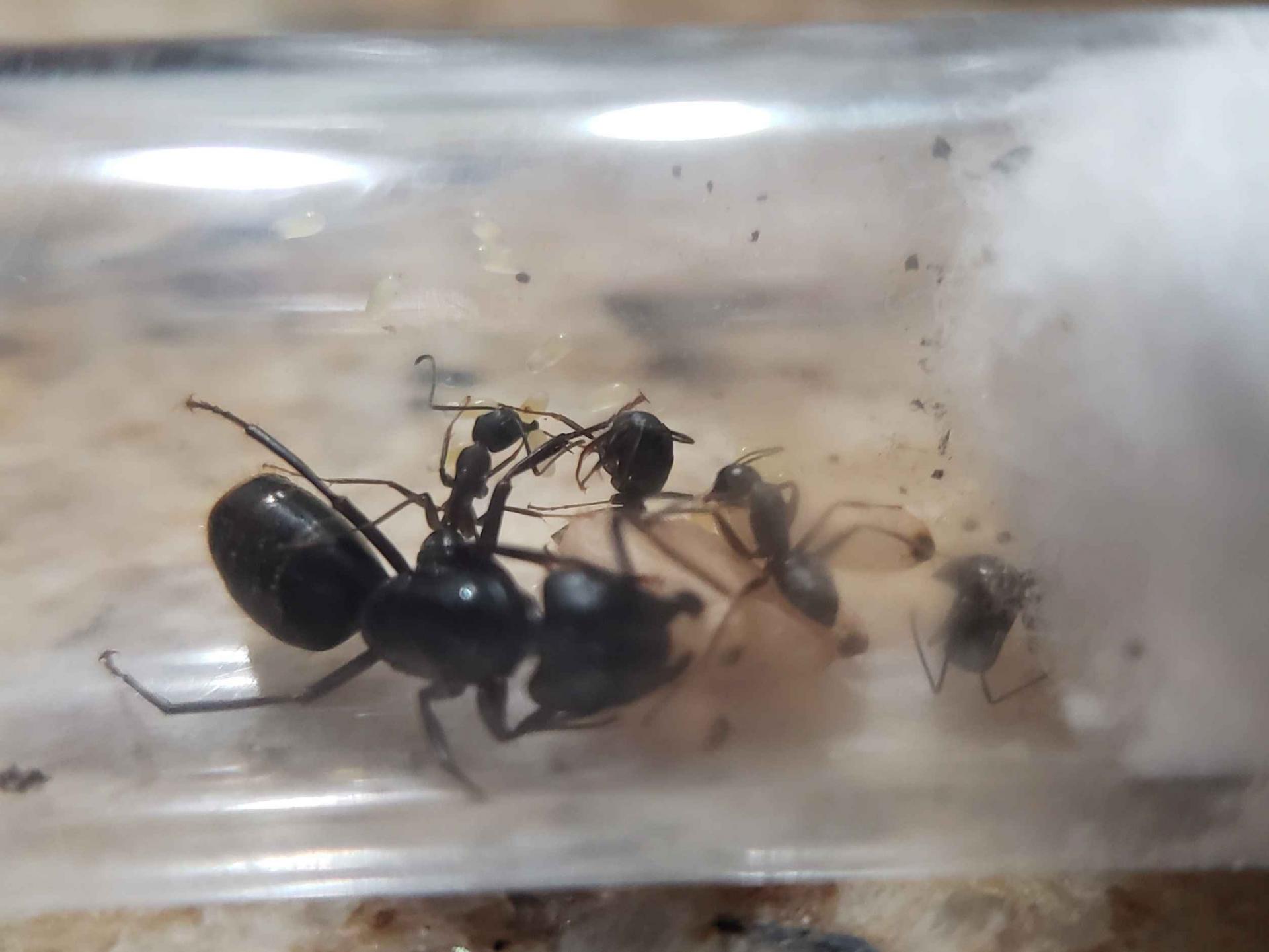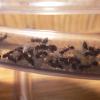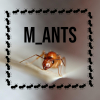Hello, I have a young Black Carpenter Ant Colony going and its getting frustrating. The colony cannot surpass 6 workers at a time for some reason. The workers randomly die off, at first I thought it was the organic honey they were getting but the Queen is completely fine, I switched their source of sweets to sugar water made for hummingbirds. After doing that, overnight I'm left with 2 workers and bodies mixed with the brood pile. I don't understand why this is happening, I've offered them protein and sugar sources consistently, the water in their test tube is spring water. I don't understand how the workers get wiped out but the queen remains fine because she is eating and drinking the same stuff, still laying eggs. This is the ups and downs of the worker population: (nanitics) 2 > 4 > 8 > 6 > 4 > 7 > 2(current). They were connected to an outworld but I've decided to remove them from it because of this issue. The remaining workers are displaying odd behavior, like disoriented and stumbling. Anyone here have similar experience or know what's going on?

- Formiculture.com
- Forums
- Gallery
- Members
- Member Map
- Chat





















